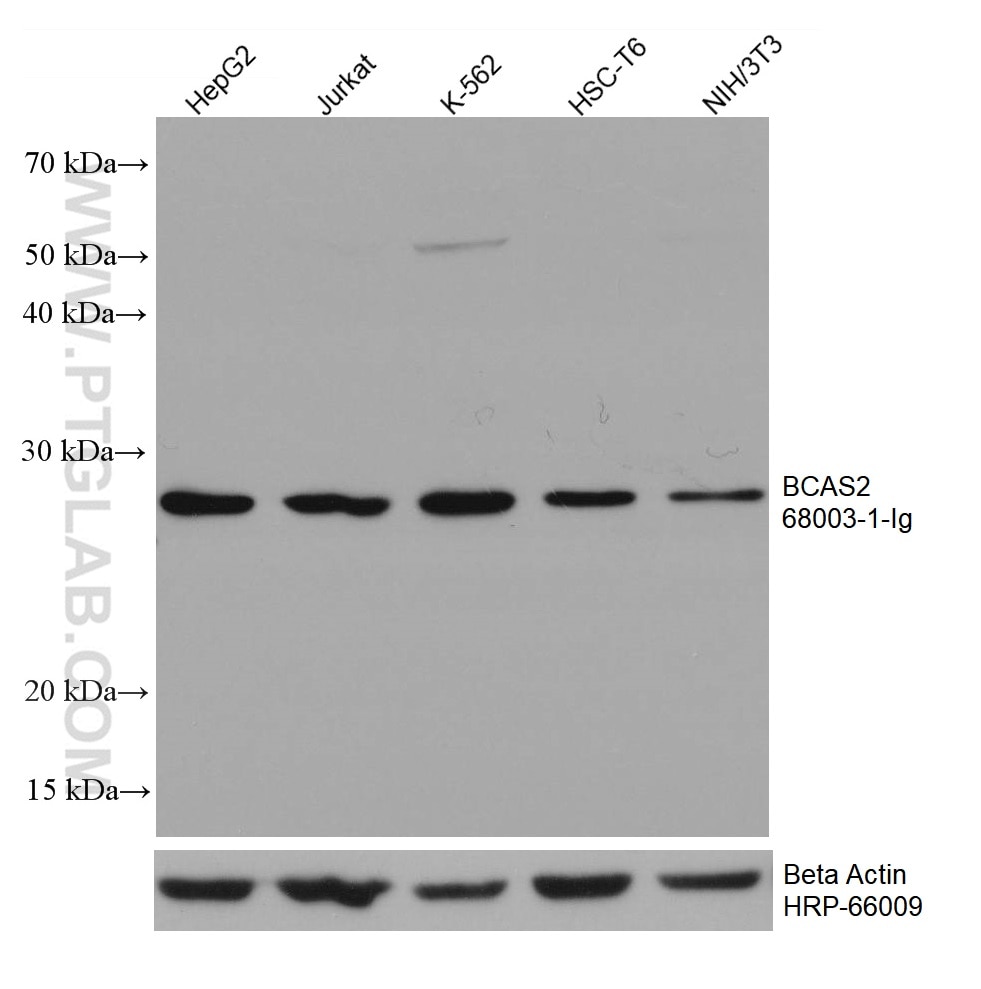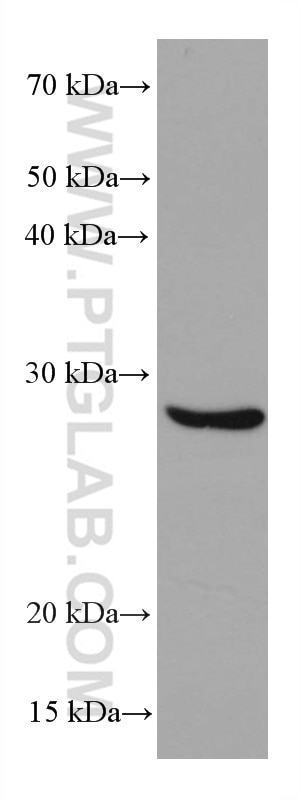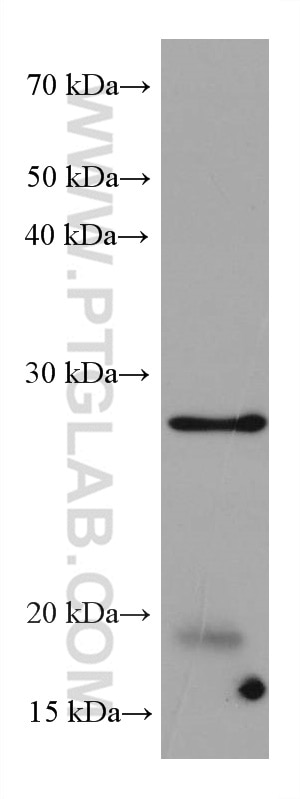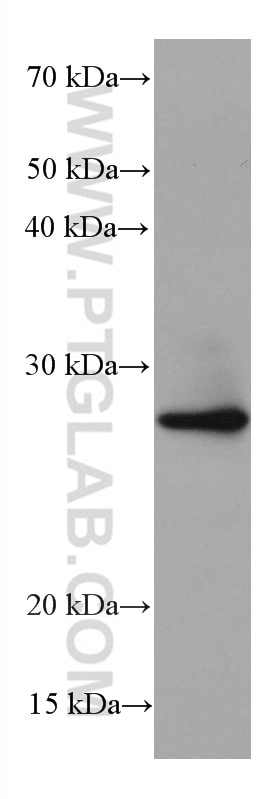Anticorps Monoclonal anti-BCAS2
BCAS2 Monoclonal Antibody for WB, ELISA
Hôte / Isotype
Mouse / IgG1
Réactivité testée
Humain, rat, souris
Applications
WB, ELISA
Conjugaison
Non conjugué
CloneNo.
2A12G1
N° de cat : 68003-1-Ig
Synonymes
Galerie de données de validation
Applications testées
| Résultats positifs en WB | cellules HepG2, cellules HEK-293, cellules HeLa, cellules HSC-T6, cellules Jurkat, cellules K-562, cellules LNCaP, cellules NIH/3T3 |
Dilution recommandée
| Application | Dilution |
|---|---|
| Western Blot (WB) | WB : 1:2000-1:10000 |
| It is recommended that this reagent should be titrated in each testing system to obtain optimal results. | |
| Sample-dependent, check data in validation data gallery | |
Informations sur le produit
68003-1-Ig cible BCAS2 dans les applications de WB, ELISA et montre une réactivité avec des échantillons Humain, rat, souris
| Réactivité | Humain, rat, souris |
| Hôte / Isotype | Mouse / IgG1 |
| Clonalité | Monoclonal |
| Type | Anticorps |
| Immunogène | BCAS2 Protéine recombinante Ag21309 |
| Nom complet | breast carcinoma amplified sequence 2 |
| Masse moléculaire calculée | 26 kDa |
| Poids moléculaire observé | 28 kDa |
| Numéro d’acquisition GenBank | BC005285 |
| Symbole du gène | BCAS2 |
| Identification du gène (NCBI) | 10286 |
| Conjugaison | Non conjugué |
| Forme | Liquide |
| Méthode de purification | Purification par protéine G |
| Tampon de stockage | PBS avec azoture de sodium à 0,02 % et glycérol à 50 % pH 7,3 |
| Conditions de stockage | Stocker à -20°C. Stable pendant un an après l'expédition. L'aliquotage n'est pas nécessaire pour le stockage à -20oC Les 20ul contiennent 0,1% de BSA. |
Informations générales
Breast carcinoma amplified sequence 2 (BCAS2) is preferentially known as pre-mRNA splicing factor SPF27 and was originally characterized as an up-regulated gene by amplification in human breast cancer cells. BCAS2 has been shown to be involved in DNA damage repair through the replication protein A (RPA) complex.
Protocole
| Product Specific Protocols | |
|---|---|
| WB protocol for BCAS2 antibody 68003-1-Ig | Download protocol |
| Standard Protocols | |
|---|---|
| Click here to view our Standard Protocols |





